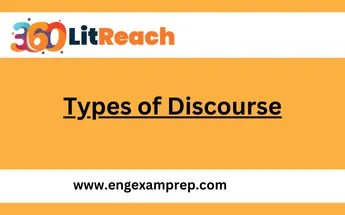Introduction: Speech acts are fundamental to the study of discourse analysis, emphasizing the functional aspect of language as a tool for performing actions. These actions, enacted through speech, encompass a wide range of communicative functions, from requesting and apologizing to promising and asserting. This note explores the concept of speech …
Read More »Context in Discourse Analysis
Key Concepts in Discourse Analysis A Brief Overview Context: Understanding the situation in which the discourse takes place is crucial. Context includes the physical setting, cultural background, and social circumstances that influence communication. Coherence and Cohesion: Coherence refers to the logical connections within the text, while cohesion is about the …
Read More »Dialogic Discourse
Exploration of its Purpose, Characteristics, and Examples Purpose: Dialogic discourse is inherently geared towards engaging in conversation or dialogue, fostering interactive communication between two or more participants. Unlike other forms of discourse that may serve informative, persuasive, or instructive purposes, dialogic discourse prioritizes the exchange of ideas, perspectives, and experiences …
Read More »Instructive Discourse
Purpose, Characteristics, and Examples Purpose: Instructive discourse serves the fundamental purpose of providing clear and concise instructions or guidelines to facilitate understanding and execution of a particular task or process. Whether it involves assembling furniture, preparing a recipe, or operating a piece of equipment, instructive discourse aims to guide individuals …
Read More »Argumentative Discourse
Exploration of Purpose, Characteristics, and Examples Purpose: Argumentative discourse is a form of communication meticulously crafted to present a reasoned argument on a contentious or debatable issue. Unlike persuasive discourse, which aims to sway the audience’s beliefs or actions, the primary objective of argumentative discourse is to engage in intellectual …
Read More »Persuasive Discourse
Purpose, Characteristics, and Examples Purpose: Persuasive discourse is a form of communication designed with the explicit intention of convincing or persuading the audience to adopt a particular viewpoint, belief, or course of action. Its primary objective is to sway the audience’s opinions, attitudes, or behaviors by presenting compelling arguments and …
Read More »Expository Discourse
Exploring its Purpose, Characteristics, and Examples Purpose: Expository discourse serves the fundamental purpose of explaining, informing, or providing information on a particular topic. Its primary aim is to elucidate a subject matter in a clear and comprehensible manner, enabling the audience to grasp the underlying concepts effectively. Characteristics: Clear, Logical …
Read More »Descriptive Discourse
Detailed Note on Descriptive Discourse Purpose: The primary purpose of descriptive discourse is to provide a detailed and vivid description of a person, place, thing, or event. It aims to paint a picture in the reader’s mind, allowing them to visualize and experience the subject through rich, sensory details. Descriptive …
Read More »Narrative Discourse
Purpose:The primary purpose of narrative discourse is to tell a story or recount events. It aims to engage the reader by weaving a series of events into a coherent and compelling story. Through narrative discourse, writers and speakers can share experiences, convey messages, entertain, and sometimes provide insights or moral …
Read More »Types of Discourse
Understanding the various types of discourse is crucial for effective communication, whether in writing or speaking. Each type serves a distinct purpose and employs specific characteristics to achieve its goals. Here, we provide a comprehensive exploration of the main types of discourse: 1. Narrative Discourse Purpose: To tell a story …
Read More »








